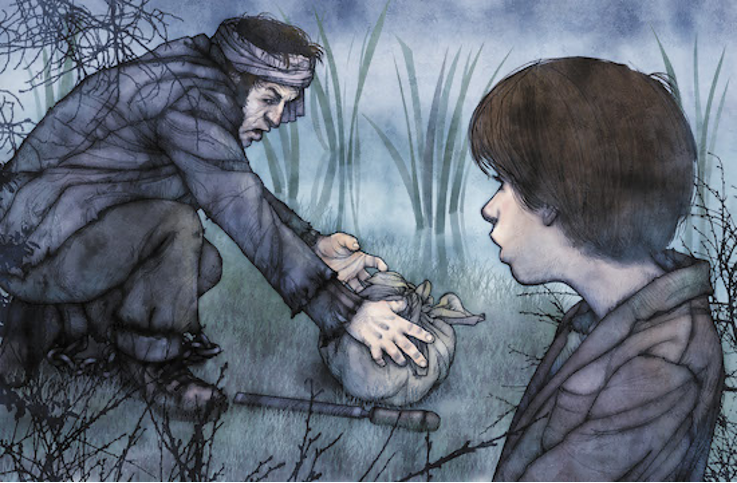FAMILY
Parisians adore the sunshine. On a sunny day the many squares and parks are peopled by children dressed in gay costumes, always attended by parents or nurses. The old gingerbread venders at the gates find a ready sale for chunks of coarse bread (to be thrown to the sparrows and swans), hoops, jump-ropes, and wooden shovels,—for the little ones are allowed to dig in the public walks as if they were on private grounds and heirs of the soil. Here the babies build their miniature forts, while the sergents-de-ville (or policemen), who are old soldiers, look kindly on, taking special care not to trample the fortifications as they pass to and fro upon their rounds.
Here future captains and admirals sail their miniature fleet, and are as helplessly horror-stricken when the graceful swans sally out and attack their little vessels, as when from Fortress Monroe the spectators watched the “Merrimac” steam down upon the shipping in the roads.
Here the veterans, returned again to childhood, bask in the sun, and, watching the fort-building, forget their terrible campaigns amidst snows and burning sands, delighting to turn an end of the jumping rope or to trot a long-robed heiress on, perhaps, the only knee they have left.
Parisians are very fond of uniforms, and so begin to employ them in the dress of citizens as soon as they make their entry into the world, even before they are registered at the mayor’s office; for the caps and cradles of a boy (or citoyen) are decorated with blue ribbons, and the girl (or citoyenne) with pink.
Every boys’ or girls’ school of any pretension has a distinctive mark in the dress, and so has each employment or trade,—the butcher’s boy, always bareheaded, with a large basket and white apron; the grocer’s apprentice, with calico over-sleeves and blue apron; and the pastry-cook’s boy, dressed in white with white linen cap, who despises and ridicules the well-blacked chimney-sweep, keeping the while at a respectful distance. And we must not forget the beggars, with their carefully studied costumes of rags, or the little Italians, born in Paris, but wearing their so-called native costume, which has been cut and made within the city walls.
The little ones of the outskirts of the city are generally independent and self-reliant youngsters, and sometimes, before they are quite steady on their feet, we meet them already doing the family errands, trudging along, hugging a loaf of bread taller than themselves. But the rosy plumpness of the fields is wanting; for children are like chameleons, and partake of the color of the locality they inhabit, so these poor little ones are toned down by the smoke and dust of the workshops. Their play-ground is under the dusty, dingy trees of the wide avenues; but they have the same games of romps their peasant mothers brought from their country homes, and above the noise of the passing vehicles we often hear their voices as they dance round in a circle, and sing verses of some old provincial song.
The delightful hours spent in boyhood, going to and from school, are unknown in the gay French capital to children of well-to-do parents. Instead of starting early and lingering on the way, they watch from the window until a black one-horse omnibus arrives, when a sub-master takes charge of the pupil, and the omnibus goes from house to house, collecting all the scholars, who are brought home in the same manner, the sub-master sitting next the door, giving no chance to slip out to ride on top, or to beg the driver to trust a fellow with the reins; and as it is the custom to obey all in authority, the master is respected. Girls are either sent to boarding-school or go to a day-school; in the latter case, always accompanied by one of their parents or a trusty servant. But the parents, if their means will not permit them to send their boys to schools that support a one-horse omnibus, or if they have not a servant to go with them, perform that task themselves. In the schools for the poorer classes, when teaching is over, the children file out, two by two, the older children being appointed monitors, and the little processions disappear in different directions; the teachers standing at the gate until they are lost from sight, for they have not far to go, as there is a free school in each quarter.
But I pity the charity-school girls. Although always neatly and cleanly dressed, they are all alike, with white caps, and dresses which might have been cut from the same piece. They file through the streets or public gardens, under the charge of the “good sisters,” and perhaps they stop to play or rest sometimes, but I never saw them do so. Perhaps there is no real reason to pity these charity-children, boys or girls; but I remember my own free and happy school-days in America, and so I pity them.
